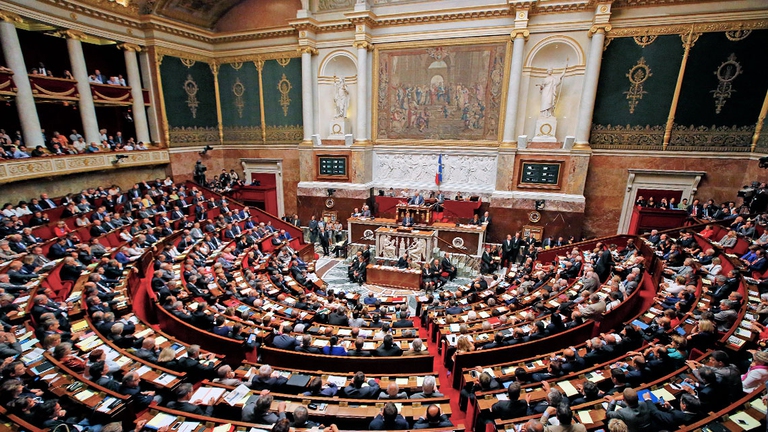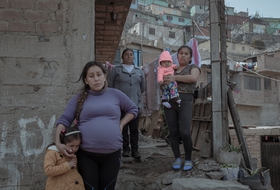
One in three women have suffered physical or sexual violence. With contributions from Europe, Africa, Asia and Latin America, we look at how this shadow pandemic affects every corner of the world.
The French Parliament spent a day examining the issue of surrogacy. The result is a universal charter for the abolition of surrogate motherhood.
A solemn decision taken by some Catholic associations as well as French progressives and feminists, led by Sylviane Agacinski, to pay back their long-term efforts against the practice of gestational surrogacy, also known as host or full surrogacy.
Female intellectuals, scholars and economists took part in the three hours of debate at the French Parliament. They showed documents and testimonies and told that surrogacy – in most cases – isn’t a gift or an expression of solidarity, but injustice and oppression against the poor.
The stories of thousands of Indian as well as Thai women who are part of an increasing “system of biotechnological production of children” – as the French feminist and philosopher Sylviane Agacinski, wife of former socialist prime Minister Lionel Jospin defined it – particularly caused a sensation. The author of Corps en miettes (“Body into pieces”, Flammarion) accused the newspapers to “lose their way while looking for progress. Newspapers only talk about the happiness of couples that want a child to the point that they’re convinced to have a right to it regardless of the means to have one. But despite this propaganda, people begin to understand, thanks to a number of documentaries, the violence from which women suffer when seeing maternity entering the market”.
The three groups that launched the initiative are the CADAC (Union for women’s rights), CLF (Lesbian French Coordination) and CORP (Union for the Respect of the Individual) led by Agacinski. The American leader and founder of the Center for bioethics and culture network Jennifer Lahl, who became a global point of reference of the civil struggle with her documentaries and petitions, came to Europe to take part in the campaign.
Violence, slavery, neo colonial market: these are the images evoked. The struggle against surrogacy has to do with the struggle against prostitution, because both have to do with the selling of women’s bodies. So, one of the major challenges is fighting against the sweetened perception of gestational surrogacy.
It is significant that France, the country of the human rights where in recent months there was a bitter controversy over same-sex marriages, is in the front line to fight surrogacy. The new French charter condemns surrogacy as a “social practice orchestrated by human reproduction companies, in an organized production system involving laboratories, doctors, lawyers, agencies etc. This system needs women as means of production, so that pregnancy and childbirth become a functional process that has a use value and a commercial value and is part of the globalization of human body markets”. The charter finally requires to “to oppose firmly any form of legalization of surrogate motherhood at a national or international level in particular by promoting the elaboration, adoption and effective implementation of an international convention for the abolition of substitute motherhood”.
Finally, the members of the Parliament (not only the French Parliament) have signed the “universal charter for the abolition of surrogacy”, which is available in 7 languages on the site of the CORP association, where it can be signed online.
Siamo anche su WhatsApp. Segui il canale ufficiale LifeGate per restare aggiornata, aggiornato sulle ultime notizie e sulle nostre attività.
![]()
Quest'opera è distribuita con Licenza Creative Commons Attribuzione - Non commerciale - Non opere derivate 4.0 Internazionale.
One in three women have suffered physical or sexual violence. With contributions from Europe, Africa, Asia and Latin America, we look at how this shadow pandemic affects every corner of the world.
The Istanbul Convention against gender-based and domestic violence marks its tenth anniversary. We look at what it is, who its signatories are, and what the future might hold.
European Commission President Ursula von der Leyen reminded us of the gravity of violence against women around the world, and of the Istanbul Convention’s utmost importance.
President Erdoğan has pulled Turkey out of the Istanbul Convention, key in the fight against gender violence, claiming that it favours the LGBT community rather than family values.
Violence against women in Peru has increased as a result of Covid-19 lockdowns. 14,912 people were reported missing from January to November 2020, more than half of them minors and 64 per cent women. People have been confined to their homes for months, many forced to endure poor physical, economic and social conditions. A situation that
Joys Estefani Qqueccaño Huamani, 24, disappeared from her rural community in Peru on 9 October. Her family began looking for her independently of the authorities and despite the resistance of relatives of Joys Estefani’s ex-partner Arturo Ccana Condori, 32, charged with committing violence against her on 28 September, eleven days before Joys Estefani disappeared. Photos
Costa Rica celebrated its first same-sex marriage when two women, Alexandra Quiros and Dunia Araya, celebrated their wedding: an “extraordinary moment”.
The pandemic and its restrictions are affecting everyone, without exceptions. However factors like housing, income inequalities, gender, access to technology and working conditions are influencing how people experience the health crisis.
Time magazine’s 100 Women of the Year project sheds light on influential women’s stories, from Amelia Earhart to Greta Thunberg. A selection of some of the greats for International Women’s Day.








